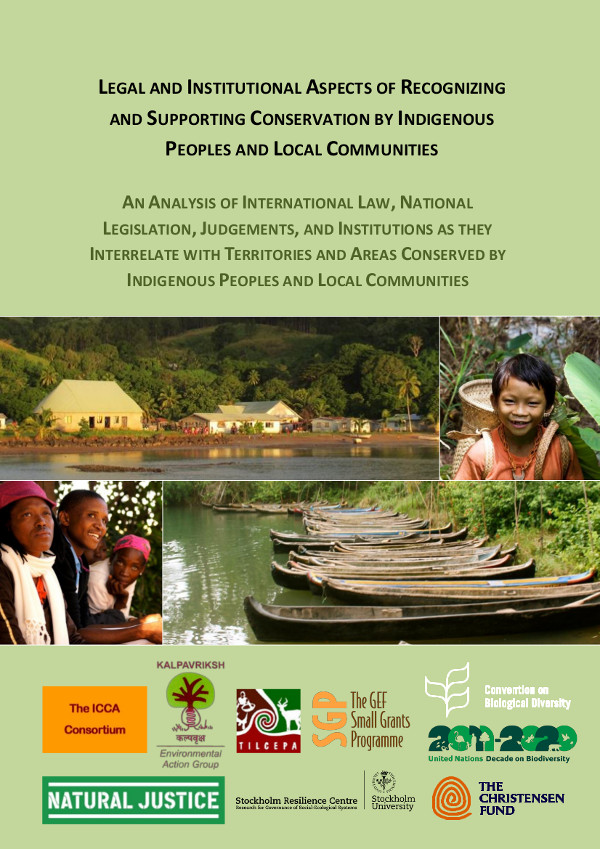First published on 09/30/2012, and last updated on 06/02/2017
Across the world, areas with high or important biodiversity are often located within Indigenous peoples’ and local communities’ conserved territories and areas (ICCAs). Traditional and contemporary systems of stewardship embedded within cultural practices enable the conservation, restoration and connectivity of ecosystems, habitats, and specific species in accordance with indigenous and local worldviews. In spite of the benefits ICCAs have for maintaining the integrity of ecosystems, cultures and human wellbeing, they are under increasing threat. These threats are compounded because very few states adequately and appropriately value, support or recognize ICCAs and the crucial contribution made by Indigenous peoples and local communities to their stewardship, governance and
maintenance.
Between 2011-2012, the ICCA Consortium undertook an international-to-local analysis of a spectrum of laws relevant to ICCAs. The reports analyze the effects of laws, policies and implementing agencies on ICCAs, and explore the diversity of ways in which Indigenous peoples and local communities are using the law to sustain the resilience of their ICCAs. Goals:
- Recognizing and supporting conservation by indigenous peoples and local communities.
- Analyses of international law, national legislation, judgments, and institutions as they interrelate with territories and areas conserved by indigenous peoples and local communities.
The synthesis report was launched in 2012 at the World Conservation Congress (Jeju, Korea) and the 11th Conference of the Parties to the Convention on Biological Diversity (Hyderabad, India)
